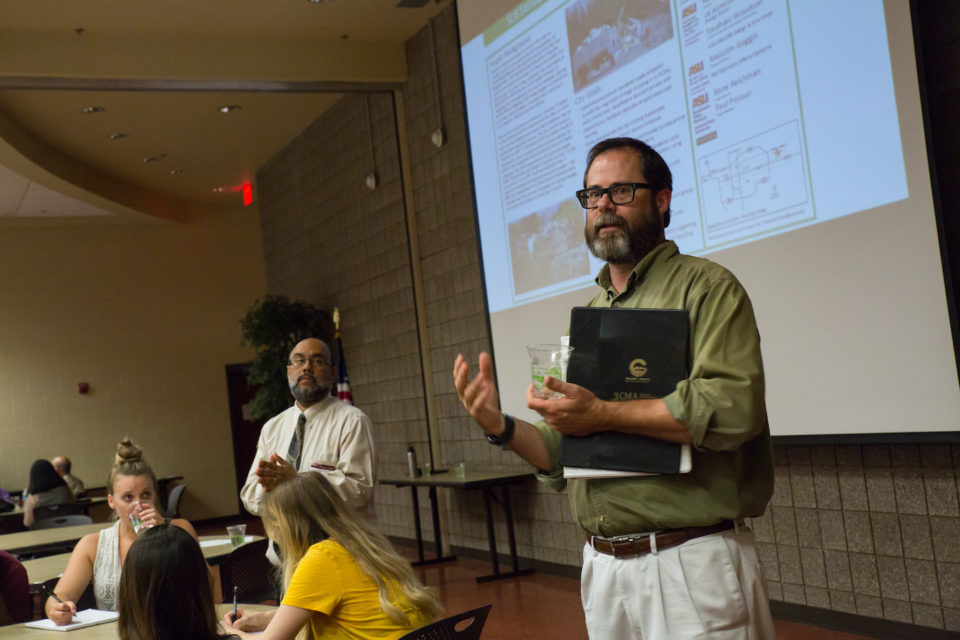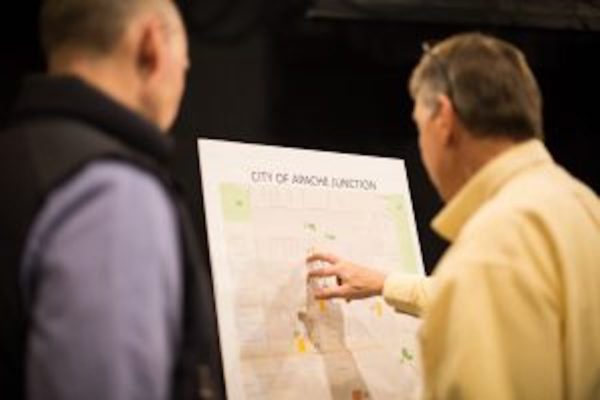Graduate-level class provides actionable sustainability recommendations to Apache Junction
Apache Junction partnered with ASU’s Project Cities to research potential pathways toward a more sustainable, community-centric 2020 General Plan
Metrics
Community
Apache Junction, Arizona, USACommunity Size
41,739 (2018 Census Estimation)University
Arizona State UniversityProgram
Project CitiesYears
2017Status
CompletedCase Type
Project StoriesSchool Size
Greater than 40,000Focus Areas
Environment SustainabilityDiscipline
GIS, Urban and Regional PlanningRegion
EPA Region 9, USACommunity Partner Department
Economic DevelopmentPolicy
SustainabilityUniversity Department Code
Urban and Regional PlanningSustainable Development Goals
11 Sustainable Cities and CommunitiesCommunity Population Sizes
41739 (2018 Census Estimation)Population Type
ResidentsA relatively young city rich in natural resources and assets, Apache Junction provides its residents with a high quality of life. Even as the city has grown, they have made concerted efforts to involve citizens in their city-planning process. While the city has implemented sustainability efforts beneficial for both its community and environment in its 2010 General Plan, from hosting a farmers market to getting government buildings LEED-certified, they still aspired to integrate sustainability efforts in a more intentional way.
In an effort to establish a more sustainable General Plan for 2020, Apache Junction sought out an independent group to conduct an internal audit. A member of the EPIC-Network, Arizona State University’s Project Cities was invited to participate and engage with the research and development of Apache Junction’s 2020 General Plan. ASU’s Project Cities, which “connects higher education with local communities,”dedicated a graduate-level class to assess the city’s sustainability efforts and performance, while creating action-oriented recommendations for future implementation.


The involved Arizona State University students assessed the city’s sustainability performance using the STAR Community framework. Standing for “Sustainability Tools for Assessing and Rating Communities,” STAR Communities (now known as LEED for Cities and Communities) is a national sustainability metrics tracking effort supported by a coalition of local municipalities. The STAR framework is a data-driven assessment tool that allows local governments to “measure community sustainability based on social, economic and environmental indicators.” (PC Spring 2018 Guide)
Students saw this as an excellent set of metrics, that could enable them to assess past and current sustainability efforts, while defining potential roadmaps toward a more sustainable future. They planned on researching and exploring Apache Junction’s seven major STAR Goal Areas:
- Built Environment; Climate and Energy
- Economy and Jobs
- Education, Arts, and Community
- Equity and Empowerment
- Health and Safety
- Natural Systems.
From this, they would identify indicators for future action, which could be implemented into Apache Junction’s 2020 General Plan Update.
Based off of comparative literature research and the consultation of numerous peer city case studies, ASU graduate students created recommendations for Apache Junction’s 2020 General Plan based off of the seven STAR Communities goal areas. Recommendations provided by students research included some of the following:
- Introduce a new water resource strategy to diversify water sources;
- Create a performance-measurement system that tracks greenhouse gas emissions, which transparently provides neighborhood-level data;
- Have community college students and retirees share their knowledge to aid economic development strategies.
Student recommendations, informed by the STAR framework, illuminates actionable opportunities and plans intended to make Apache Junction’s 2020 General Plan more sustainable. These recommendations are now readily available to city professionals, policy makers, and residents, which can stimulate conversations around their implementation regarding financial and time-bound considerations.
University Capital
Community Results
Arizona State University Project Cities Contact
Steve Russell
Program Manager
(480) 727-2698
steven.russell@asu.edu
City of Apache Junction Contact
Larry Kirch
Director
Development Services
lkirch@ajcity.net
480-474-5082
Read the full story of the partnership.








